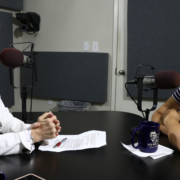Consumer groups: Proposed DOT rules will undermine agency’s ability to protect passengers
May 28, 2020
Media contact: National Consumers League – Carol McKay, carolm@nclnet.org, (412) 945-3242 or Taun Sterling, tauns@nclnet.org, (202) 207-2832
Washington, DC—Consumer groups today called the Department of Transportation’s (DOT) proposal to modify how it protects passengers from unfair and deceptive acts and practices in the air travel marketplace “fatally flawed” and urged the agency to abandon its rulemaking. In comments filed with the agency, the National Consumers League and Consumer Action questioned why the Department would begin such a far-reaching rulemaking, which it apparently did at the request of the nation’s largest airline lobbying group.
“The proposed rules, formulated at the behest of the airline lobby, would not benefit consumers,” said John Breyault, NCL vice president of public policy, telecommunications, and fraud. “If adopted, they would give airlines even greater incentives to engage in the kinds of anti-passenger practices—like leaving passengers stuck on the tarmac for hours on end—that Congress intended the DOT to prevent.”
The DOT’s proposed rules (“Defining Unfair or Deceptive Practices,” Docket No. DOT-OST-2019-0182), would also require the agency to overcome burdensome hurdles before any new enforcement actions or consumer protection rulemakings are initiated.
DOT’s enforcement activity is at the lowest level in a decade. Last year, the DOT initiated the fewest number of enforcement actions (9) and the second-lowest amount of civil penalties ($2.2 million) since 2010. Compare this to the $1.4 billion in baggage fees that the eleven biggest U.S. airlines collected in the fourth quarter of 2019 alone. The groups’ comments questioned how such metrics could square with the airline industry’s portrayal of the DOT as a consumer protection agency run amok.
“We understand that the airlines are facing severe economic headwinds due to COVID-19,” said Linda Sherry, Consumer Action’s director of national priorities. “That should be no excuse for the DOT to cave to industry pressure and abandon its critical consumer protection role in the air travel marketplace.”
The organizations’ full comments are available here.
###
About the National Consumers League
The National Consumers League, founded in 1899, is America’s pioneering consumer organization. Our mission is to protect and promote social and economic justice for consumers and workers in the United States and abroad. For more information, visit www.nclnet.org.




















